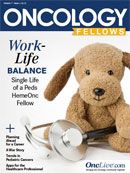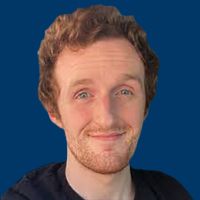Work-Life Balance of a Hem/Onc Fellow
I am a member of the cohort of 30-something single Indian women who were not lucky enough to snag the right guy during med school, and perhaps am not genetically engineered to be good at dating and studying simultaneously.
“Dr Narayan, aren’t you dating anyone yet? Maybe you work too much!” smiled Mrs Butler as she relaxed in her chair. Those tired lines around her eyes were gone. There we were in Exam Room 22, Nina’s room. I lovingly touched her soft, stubbly, baby-duck-like hair. This family had just lived through the worst 9 months of their lives, and now here sat their daughter, flushed cheeks and a cheerful smile on her face. Her recent test results revealed a perfect complete blood count and what one pathologist had described as “a beautiful marrow.” She was an acute myeloid leukemia survivor. “It’s growing,” she said self-consciously as she pulled her wig back on. I knew she wanted her hair back in time for high school graduation. That somehow seemed way more important to me than going on a date. I squeezed her hand. Nina is braver than I am.
As most of my colleagues discuss where to host their kids’ birthday parties or what to cook for their in-laws, I am mentally (or sometimes literally) scrolling through the list of guys on my dating profile, trying to decide who is worth getting dressed up for. I am a member of the cohort of 30-something single Indian women who were not lucky enough to snag the right guy during med school, and perhaps am not genetically engineered to be good at dating and studying simultaneously.
I am subsequently generally the oldest of my single friends and the “singlest” of my same-age friends. Culturally I am a spinster, a has-been, a “well-at-least-she’ssmart” per my grandmother, who is genuinely perplexed by the notion that tall, handsome, Hindu, vegetarian, Brahman professional men aren’t a dime a dozen.
Socially I apparently do not know how “lucky” I am to be alone, according to the fellow with marital problems, or the one who had to stop her whole career and relocate in support of her spouse. And so, counting my blessings, I throw myself into my work and the gym. Most days I leave both places feeling thankful and happy, and admittedly a little wistful for the day I can go home to cook for my husband or play with my own kids.
My days of fellowship generally end with signing clinic notes, preparing lectures for residents, or sending one last e-mail to the Institutional Review Board, pleading for approval of my research project. Many of my evenings entail putting on expensive makeup and uncomfortable shoes to go on yet another date, with a quick prayer before I run out the door. I push the elevator down button and tell myself with determination, “Maybe this will be the right guy,” as I fight to not think about the day’s events. Omar ’s leukemia relapsed again, leaving him very few options…little Corey’s brain tumor is gone, and now he can hold a sippy cup... Mara died last night after a long fight with a bleeding disorder… but Heidi, who honestly nobody thought would beat her cancer, started college today! The emotional ups and downs of the day are exhausting—which frankly makes it that much more difficult to listen to a guy state all his likes and dislikes over the appetizer. I get the familiar rant as he lets it be known he will not ever move from his current job, home, or city, so marrying him means “dealing with it,” all while he sprays a mouthful of crumbs in my face between words. Did I really pause my Netflix for this?
These days it seems there is another degree of screening involved. This is no longer only about this person getting along with my family and sharing my values. Can this person handle my career? Will he listen to me cry when a toddler with a brain tumor dies, one who let me hold her special dolly only 2 weeks earlier? Will he help me remember I did the best I could?
I think back to residency to the guy who was perfect on paper, who I thought had serious potential. I remember calling him over a tiny infant who had been beaten so badly she had 2 black eyes, only to have him say to me, “Your stories are kind of depressing—I really don’t want to hear this.” While I could hardly blame him, that was a game changer.
Remembering the advice of one of my favorite mentors during residency about “work-life balance,” I had always convinced myself I had that part in the bag. I worked my 80+ hours a week, went to the gym religiously, leaving just enough time for family and friends, and occasionally even slept a full 8 hours. I was balanced! I was happy. I had, after all, survived a major hurricane at my Caribbean medical school, a computer shutting down during the medical boards, and having “black cloud” status all 3 years of residency at a busy children’s hospital. I am tough, I often thought. I can survive anything. But my pediatric hematology-oncology fellowship has been the true litmus test of those statements.
There was this one afternoon in clinic, trying to teach a helpless young woman how to mix apple juice with chemotherapy into her infant’s bottle. I had flashbacks of helping my mom wash my then-baby brother’s bottles—the careful way she scrubbed them, the pride she took in filling them before we went out to the exact plastic fill mark on the side, working tirelessly to protect us with the precision only a mother has.
My heart went out to this wide-eyed, horrified mother as the nurse taught her how to pin her baby’s arms down to make him drink the bitter potion. Fifteen months old and no fair shake in life—I stepped out and cried in the clinic bathroom. No mom ever imagines having to deliberately poison her own child in order to save his life, and no mother should have to.
Your emotions and perspective change multiple times a day in this field. The question I get asked the most is some derivative of “Wow, children with cancer—how do you DO that job?” It almost seems silly to simply say “I hate cancer.” I think the real answer is selfish. It is because they make me a better person. They make me thankful. They make me appreciate every moment I can go outside and not have to worry that cold weather will trigger pain, treasure every moment I can eat, or play, or run, cherish every moment I can talk to my family and every moment I am lucky enough to feel love. No matter how broken my heart is from the one who didn’t want to work it out, I have a boundless love inside that makes me not want to give up—one that I gain from these children.
I realize if they can bear multiple IV needle pokes and severe nausea, I can bear a few more terrible dates until the right one comes along. I realize how lucky I am to have a mother who tells me to dress nicely to work because “There could be a handsome single doctor there,” and a dad who proudly tells anyone who will listen that his daughter is a pediatrician. I realize that you can feel close to other people’s children and love them with all your heart, in spite of some who are older and wiser and advise you to keep your emotional distance. I realize that parents can feel it when you care about their child, even if all their kid needs is a little more iron and a little less milk.
I realize every day what a privilege it is to care for somebody’s loved one. When a 6-year-old offers you his last Skittle as a “thank you” for his spinal tap, how can you feel anything but gratitude? When you see a dad come to the annual party with only his child’s framed photo in hand, instead of his actual son, you understand that the depth of one’s pain is a reflection of their , and that is a beautiful lesson to learn.
Although these anecdotes are based on true events, names have been changed to preserve anonymity.




